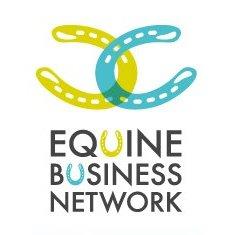Equine Activity Liability Acts (EALA):
These acts prevent an equine activity sponsor, professional, or others from being sued if a participant who engages in an equine activity suffers an injury, death, or damage done from an inherent risk. These laws include exceptions that would allow a claim to proceed if the equine activity sponsor, professional, or others do any of the following:
- Provides faulty tack or equipment that somehow causes injury, death, or damage to the equine activity participant
- Fails to determine the participant’s ability to safely manage the horse, based on the participant’s actual abilities or representation of his or her abilities
- Owns, leases, or has a lawful use of land or facilities that have a dangerous latent condition but for which no conspicuous warning signs were posted
- Some laws have exceptions that may allow liability for gross negligence, willful and wanton misconduct, or intentional wrongdoing
- Find EALAs in your state
Negligence:
Negligence is the conduct which falls below the standard established by law for the protection of others against unreasonable risk of harm. The legal standard of negligence would apply if a particular state lacks an EALA or where the matter would not activate an EALA.
Avoiding Liability:
- Understand liability
- Establish a safety program to reduce the risk of injuries and liability
- Conduct equipment inspections: tack, fences, gates, stall doors, trailers, etc.
- Train your workers
- Have manuals; provide protective equipment
- Establish barn rules
- Place signs where dangerous, non-obvious conditions exist
- Examples:
- Two-person rule
- No open-toed shoes
- Wear protective headgear
- No dogs
- A parent or adult must be present with all children under age of 18 at all times, while in the barn or around the horses.
- Match the rider’s abilities with the horse he or she rides
- Keep barn clean and put things away
- Use liability releases (waivers) carefully
- Have child and both parents sign
- Maintain the waiver for three years after a child’s 18th birthday
- State that the signers waive any legal rights to bring a lawsuit
- State that horse activities are dangerous and could cause serious harm or death
- Bold the most significant wording
- Make the waiver clear and easy to read
- Liability insurance
- This will not prevent liability, but it can help save your assets
- Read EALAs and state laws
- EALA sign posting
- The warning notice signs should be placed in a clearly visible location on or near the stables, corrals, and arenas where the equine activities are conducted
- Different states have different requirements
- Example: The state of Nebraska requires all black text with the “WARNING” at a minimum of 3 inches in height and the rest of the text at a minimum of 1 inch in height
- The state of Nebraska warning notice wording and regulations can be found here
- EALA contract language
- Consider incorporating
- This can also help save assets
- Have to file annual reports, use separate bank accounts, and separate bookkeeping

What If Something Happens?
- File an incident report
- Get accurate details: who, what, where?
- Physical complaints
- Get injured party’s statement
- Get signature of injured party
- Get signature of witness
- EVIDENCE!!!! Take pictures, get information from others involved
- Communicate with insurance carrier
- Assist attorney if necessary
 Additional Resources:
Additional Resources:
EALA: How It Affects Associations and Sponsors
Riding on Public Roads Statutes
Funded in part by the North Central Regional Center for Rural Development (NCRCRD)
NOT LEGAL ADVICE: This resource has been prepared for general information purposes only. The information presented here is not legal advice. Legal advice is dependent upon the specific circumstances of each situation. Also, the law may vary from state to state so that some information in this resource may not be correct for your jurisdiction. The information in this resource cannot replace the advice of competent legal counsel licensed in your state.



